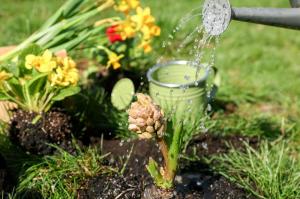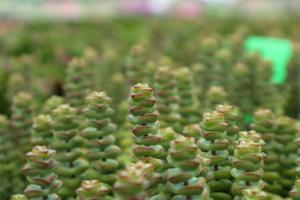Are Rubber Tree Plants Poisonous?
Rubber tree plants, also known as Ficus elastica, are a popular indoor plant due to their attractive foliage and easy care. However, many people are uncertain about whether or not these plants are toxic. In this article, we will delve into the question of whether rubber tree plants are poisonous or not.
What Parts of the Rubber Tree Plant are Toxic?
The leaves and sap of the rubber tree plant contain a substance called ficin, which can be toxic to humans and pets if ingested. The concentration of ficin varies depending on the age of the plant and the part of the plant that is consumed. Typically, young, tender leaves and stems contain the highest levels of ficin. However, the amount of ficin in the rubber tree plant is generally not high enough to cause serious harm unless large amounts are consumed.
What are the Symptoms of Rubber Tree Plant Poisoning?
If you or your pet ingests any part of a rubber tree plant, you may experience symptoms of poisoning such as mouth or throat irritation, nausea, vomiting, and diarrhea. Mild skin irritation may also occur if the sap comes into contact with your skin. In severe cases or if you are allergic, you may experience difficulty breathing, chest tightness, and anaphylaxis.
How to Prevent Rubber Tree Plant Poisoning
The best way to prevent rubber tree plant poisoning is to keep the plant out of reach of pets and children. If you have pets or small children, it is recommended that you keep these plants in areas that are inaccessible, such as on a high shelf or in a room with a closed door. Additionally, it is important to wash your hands thoroughly after handling the plant or touching any surfaces that have come into contact with sap.
What to Do if You Suspect Rubber Tree Plant Poisoning
If you or your pet experiences any symptoms of rubber tree plant poisoning, seek medical attention immediately. Symptoms can range from mild to severe depending on the amount of plant material ingested and the individual's sensitivity to ficin. In the meantime, you can try to rinse out the mouth with water and remove any remaining plant material.
Conclusion
While rubber tree plants do contain a substance that can be toxic if ingested in large quantities, the risk of poisoning from these plants is relatively low. By keeping the plant out of reach of children and pets and washing your hands thoroughly after handling it, you can reduce the risk of accidental ingestion. If you or your pet experiences any symptoms of poisoning, seek medical attention immediately.

 how many times do yo...
how many times do yo... how many planted tre...
how many planted tre... how many pine trees ...
how many pine trees ... how many pecan trees...
how many pecan trees... how many plants comp...
how many plants comp... how many plants can ...
how many plants can ... how many plants and ...
how many plants and ... how many pepper plan...
how many pepper plan...































